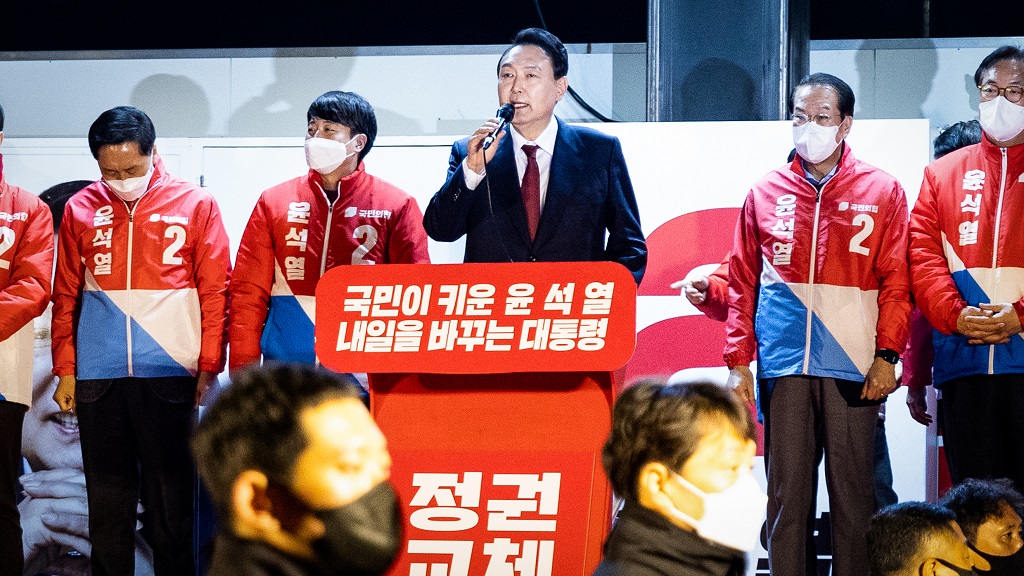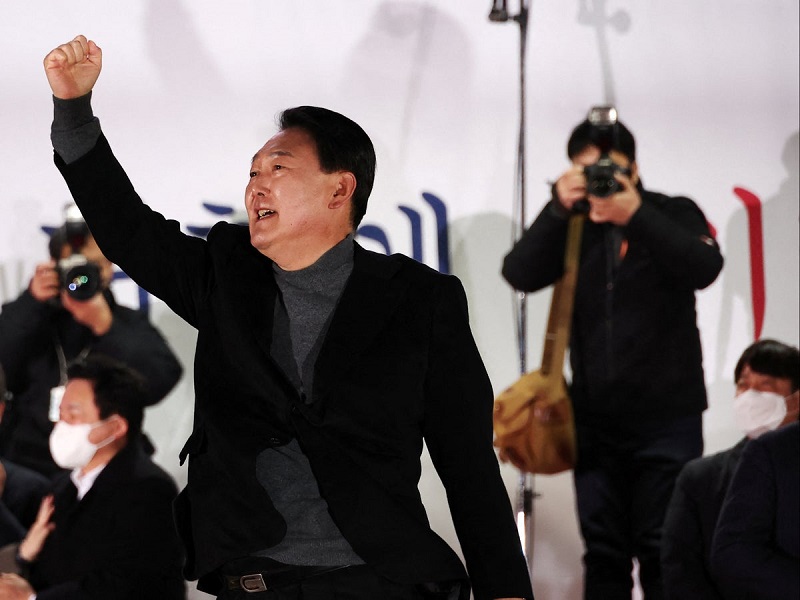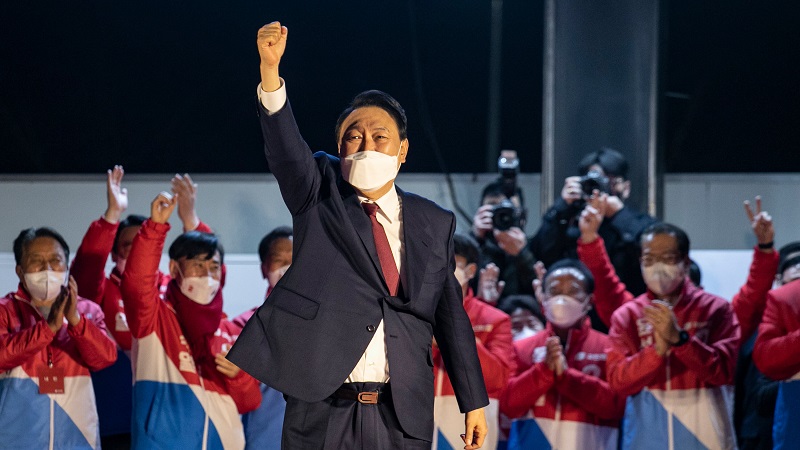
South Korea has chosen a New President, Yoon Suk-Yeol, after a nail-biter of a vote between two “unlikable” and a scandal-plagued race.
Yoon, head of the People's Power Party and a previous examiner, pulled .85% ahead Thursday of Lee Jae-Myung, of the administering Democratic Party.
Onlookers had contrasted the race with Netflix's “Squid Game,” the South Korean survival drama. As indicated by the AP, “Assessment overviews show that the two up-and-comers have more critics than supporters.”
Yoon, the conservative opposition choice, promised to get rid of an administration organization dedicated to ladies' equality and has been blamed for involving a shaman as a political counsellor, while Lee has been blamed for corruption.
Yoon has additionally accused members of Lee's party of utilizing campaign strategies similar to those of Adolf Hitler and Benito Mussolini. Lee's political partners referred to Yoon as “a void can” and a “dictator.”
Current South Korean President Moon Jae-in's approval appraisals have been floating around 45%, which is in contrast to his ancestors' endorsement evaluations in their final months in the presidency. In that sense, Moon is probably going to be the primary president who had no lame-duck period. Notwithstanding, with Yoon as his successor, the results of the election mirrored Moon's disappointment in governing domestic affairs for the past five years.
Contrasted with Past Experience, the previous political decision was especially a milestone for Koreans in their 20s.

Based on the exit polls, electors in their 20s inclined in the direction of various competitors: 58.7% of male voters in their 20s voted for Yoon while 58.0% of female electors decided in favour of Lee. Youthful Koreans were at that point conflicting on social media over gender disparity issues when the primary opposition was chosen as its leader Lee Jun-Seok, a symbolic youthful legislator who has been remaining against local feminism movements. Lee multiplied down on his position as a protector of young fellows by convincing Yoon to promise to nullify the Ministry of Gender Equality and Family. Importantly, this has split apart people in their 20s. Many young female voters chose to vote for Lee, not Sim, to block this drive.
Korean Presidential Election Process Results
Yoon Suk-Yeol from the safe People Power Party (PPP) was chosen the twentieth President of the Republic of Korea. With a 77.1% voter turnout, President-elect Yoon edged in front of Lee, Jae-Myung from the ruling Democratic Party of Korea (DPRK). With the polling forms counted Thursday morning, Yoon had gotten 48.56% of the total contrast with Lee's 47.83%.
Here Are Top Things to Know About Yoon Suk-Yeol
China Tensions Loom
Yoon Suk-Yeol swore Thursday to make South Korea a “pivotal country” in the worldwide battle for “freedom, harmony and thriving,” recommending he may be a more exciting partner in U.S. President Joe Biden's endeavours to assemble an alliance of democracies. That could remember more noteworthy interest for a U.S. push to foster inventory chains less dependent on China, with South Korea's massive semiconductor industry a key concentration. Yoon has likewise required extra sending of the U.S.- spread the word about missile interceptor framework as THAAD.
Markets Like Him
South Korea's fundamental Kospi file bounced after Yoon won the race, supported by his business-friendly campaign promises. His call to nullify a capital gains expense would end a Moon intend to present a tax of as much as 25% on financial backers one year from now. Market players said Yoon could bring down the corporate tax rate, which would help a sluggish market.
Legislative Gridlock Awaits
The new president faces a National Assembly where Moon's dynamic Democratic Party holds a supermajority and has little hunger to help with Yoon's domestic agenda. The next parliamentary political Election Process won't come until 2024, so Yoon could confront gridlock for at minimum the initial two years of his term – – and may be considerably longer if the PPP can't catch a greater part. This implies that Yoon could need to turn to executive orders to advance his agenda.

Easier for Chaebols
South Korea's rambling “chaebol” conglomerates that record for huge parts of the export-driven economy, for example, Hyundai, Samsung, and LG will probably be saved any calls to add transparency to their corporate administration. Yoon avoided calling for new limitations on them during his mission, while moderate legislatures have ordinarily tried not to force measures to check their powers.
Nuclear Power Priority
The duly elected president said he would contribute and uphold nuclear power and needs to send out the country's innovation abroad. Nuclear makes up around 29% of domestic power generation.
What to Expect from Market Reactions?
Based on the Past Experience of presidential election results, we expect just a restricted quick post-political impact on Korean resource markets. The KRW and KOSPI have been driven all the more intensely by worldwide risk feelings and worldwide interest conditions than by local political events. For Korean Treasury Bonds (KTBs), macro-prudential measures and macro approaches make the biggest difference. The expected fiscal lift should be positive for the financial outlook this year and ease stress for vulnerable gatherings somewhat however to the detriment of future financial health.
